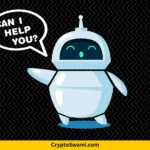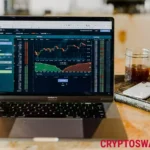DAO is an acronym for Decentralized Autonomous Organization. As its name suggests, a DAO is an open organization run entirely by computer code. The most common way DAOs make decisions is through voting systems dependent on governance tokens. The more governance tokens the members possess, the greater the voting power.
Types of Investment DAOs
DAOs will likely exceed the feasible boundaries as the Web3 ecosystem expands, blockchain technology advances, and innovators experiment with novel models. There are eight primary categories of DAOs:
- Protocol DAOs
- Grant DAOs
- Philanthropy DAOs
- Social DAOs
- Collector DAOs
- Venture/Investment DAOs
- Media DAOs
- Sub DAOs

Protocol DAOs
Protocol DAOs are blockchain-based organizations with community governance that use smart contracts to carry out their duties. Their primary objectives are the decentralized administration and advancement of the protocols on which they are constructed. These protocols, frequently encountered in the emerging decentralized finance (DeFi) field, facilitate various services, such as trading, asset management, lending, and borrowing.
Grant DAO
A grant DAO is a decentralized autonomous organization (DAO) that utilizes Ethereum-based smart contracts to award grants to individuals and organizations actively contributing to a positive global impact. In the DeFi space, grant DAOs are either a charitable extension of a larger project or an entirely distinct entity. They are designed to facilitate nonprofit donations and strategically deploy capital assets throughout the Web3 ecosystem.
Philanthropy DAO
A philanthropy DAO is governed by a decentralized and autonomous set of rules and regulations enforced through smart contracts on a public blockchain. This model enables individuals to establish and oversee their philanthropic DAO without depending on a centralized organization or intermediary. The primary benefit of a philanthropy DAO is that it provides its users with complete autonomy and transparency. The blockchain records all transactions and is readily accessible for inspection and auditing. This guarantees that all donations are traceable and that the funds are being allocated for their intended purpose. It also mitigates the risk of corruption by eliminating the necessity for a centralized authority to oversee the philanthropy DAO.
Social DAOs
Social DAOs are an intriguing phenomenon emerging at the intersection of the evolving Web3, blockchain technology, and online communities. Traditional social networks typically centralize control and extract value from their users. In contrast, social DAOs return the power (and the potential rewards) to the community. Social DAOs prioritize engagement and quality content, frequently curating specific interests, niches, or causes. This shared focus cultivates a more profound connection.
Collector DAOs
A “collector DAO” is a decentralized autonomous organization that primarily concentrates on acquiring and curating collectibles, mainly collections of NFTs. These DAOs frequently acquire NFTs of high-to-very-high value that are beyond the reach of all but the most affluent individual collectors.
Venture DAOs
Venture DAOs are a contemporary method of capital raising that encourages collaboration and involves all stakeholders in the investment decision-making process. Venture DAOs can support investments in creators, real estate, NFTs, and almost any other asset.
Media DAOs
The project was initiated to democratize media ownership and enhance the opportunities for creators, writers, and journalists to own, control, and (most importantly) monetize their work. The project is constructed on the Ethereum blockchain. It employs smart contracts to facilitate transparent revenue sharing and decentralized decision-making. DAO members can vote on the media initiatives they wish to invest in and support, as well as the creators and journalists they want to support.
Sub DAOs
A Sub DAO is a DAO that has another DAO as its administrator, thereby establishing a hierarchical relationship. The Sub DAO’s administrator (or the parent DAO) has the authority to execute any action on behalf of the Sub DAO. In other words, the parent DAO can compel the Sub DAO to perform a specific action, such as implementing a smart contract, managing members, or spending from its treasury.
Top 8 Investment DAOs
- Uniswap (UNI)
- Aave (AAVE)
- Compound DAO (COMP)
- MarkerDAO (MKR)
- Curve DAO Token (CRV)
- Apecoin (APE)
- Illuvium (ILV)
- Dash DAOs
Uniswap (UNI)

Unisawp is a major Ethereum-based cryptocurrency exchange and DAO. Uniswap’s governance token, UNI, helped the DEX platform build a major DAO. Uniswap DAO, the third-richest protocol in the crypto space with an over $5 billion treasury, has maintained its reserves exclusively in its native UNI token.
Uniswap, like other DAOs, utilizes its treasury to finance its DAO’s operations, which encompass the payment of contributors and the promotion of the project, among other responsibilities. Uniswap employs a decentralized autonomous organization (DAO) framework. This implies that UNI token holders decide the platform’s future through voting. This implies that the greater the number of UNI tokens a user possesses, the greater their voting power.
The governance token (UNI) is issued to network users with a market valuation of $5,207,675,297, with 750 million tokens tradable on the market today. The total number of UNI token holders is currently over 381,00, a boost of 175 proposals. The Uniswap DAO and its UNI token proprietors are the power sources for this dominant decentralized exchange (DEX). Protocol enhancements, fees, and the allocation of Treasury funds are all subject to the DAO’s decisive influence to promote the ecosystem’s continued growth.
AAVE

AAVE is a decentralized lending protocol that enables borrowers and lenders to engage in transactions without needing a centralized intermediary. The protocol was initially hosted on the Ethereum blockchain; however, its widespread popularity has enabled it to be integrated with numerous other networks. AAVE, the utility and governance token, is valued at over $810 million and provides a wide range of ecosystem functionalities.
Holders of the AAVE token can influence the protocol’s governance, as is the case with other prominent DAO initiatives. These encompass the utilization of Treasury funds and the potential for system enhancements. Additionally, AAVE can be utilized as collateral within the ecosystem, substantially reducing fees.
The AAVE Governance DAO enables proprietors of AAVE tokens to engage in the protocol’s decision-making process. Holders of governance tokens, including AAVE, are granted the capacity to shape the platform’s future direction and development.
The AAVE Governance DAO comprises several key components that facilitate the decision-making process. This includes;
- The Aave Improvement Proposals (AIPs): the formal proposals submitted by the community to suggest changes, updates, or improvements to the Aave protocol.
- The Safety Module: a crucial aspect of Aave’s governance model.
- The delegation of voting power.
Compound DAO (COMP)

Compound Finance is a decentralized finance (DeFi) platform that allows users to lend and borrow crypto assets. The community members govern the protocol in a compound governance DAO, who either vote on proposals or delegate their voting power to others.
Governance is essential in the compound finance ecosystem, enabling the platform to adapt, evolve, and implement the requisite changes. It guarantees that the platform is more democratic and decentralized, as the community dictates its development.
The native governance token of compound finance is COMP. It engages in governance by voting on proposals and distributing voting authority. Users are allowed to influence the platform’s future. They are encouraged to engage in the decision-making process by possessing COMP tokens.
Community members submit proposals, which may encompass modifications to the protocol, the addition of new features, or even changes to the governance structure. Users can either vote directly on a proposal or delegate their votes to a trusted entity, and each COMP token provides one vote. A proposal must obtain a minimum number of ballots to be implemented and passed.
Compound Governance DAO has numerous advantages, including:
- Community-driven development and decentralization
- Enhanced security and transparency
- Encouraging participation
Compound Governance DAO cultivates a sense of accountability and ownership among users by involving the community in decision-making.
MarkerDAO (MKR)

MakerDAO is a prominent participant in the decentralized finance (DeFi) ecosystem, pioneering the concept of decentralized autonomous organizations (DAOs) and their role in managing financial protocols. MakerDAO is a decentralized organization that is governed by its community. The community utilizes blockchain technology and smart contracts to make collective decisions. This is a decentralized organization (DAO).
The Maker Protocol, a decentralized platform, is the foundation of MakerDAO. It is responsible for issuing the DAI stablecoin and managing collateralized debt positions (CDPs) to ensure its stability. The MKR token enables holders to vote on proposals and influence the platform’s future, facilitating MakerDAO governance. Critical components of MakerDAO governance include:
- MKR token: The governance token of MakerDAO, which is utilized to vote on proposals and modifications to the protocol.
- Voting process: The Aave Governance Portal allows MKR holders to submit and vote on proposals. The weight of votes is determined by the quantity of MKR tokens that the voter possesses.
- Risk management: MKR holders contribute to risk management by voting on various parameters, including debt ceilings, collateral categories, and stability fees.
Curve DAO (CRV)

One of the most robust crypto utility tokens on the market is Curve. This DeFi protocol is hosted on the Ethereum blockchain. Curve is a liquidity provider and market-maker system among the most widely used DeFi applications. In 2020, the CRV token was introduced to facilitate on-chain governance. The Curve.fi website indicates that more than 256 liquidity pools are available for users to deposit their inactive holdings and generate a yield.
The significance of CRV tokens is underscored by the fact that Curve DAO primarily oversees the platform’s operations. The CRV governance token determines the platform’s future development and functionality. The most critical aspect is that the role of a governance token in facilitating a liquidity pool for users and carrying out automated market orders can create new precedents for the expansion of DeFi.
Apecoin (APE)

ApeCoin was one of the most successful DAOs to launch, and its NFT-based link attracted significant attention. As its name suggests, ApeCoin is closely associated with the Bored Ape Yacht Club (BAYC) NFT collection. The ApeCoin DAO, the decentralized governance framework that underpins the Ecosystem Fund, is how the ApeCoin community governs itself. The DAO implements a proposal procedure to determine the distribution of the Ecosystem Fund by the APE Foundation to foster a self-sustaining and diverse ecosystem.
Intriguingly, the ApeCoin community operates as a decentralized autonomous organization (DAO), which entails that the community determines the allocation of Treasury funds. The ApeCoin website features a designated “Proposals” section for voting on various ideas, and the possession of APE automatically entitles one to participate in the DAO. In a way that the community chooses, the ApeCoin DAO aims to transform the proposal and voting mechanisms into a comprehensive on-chain platform.
Illuvium (ILV)

Illuvium is a blockchain game governed by a DAO and hosted on the Ethereum network. Within a 3D universe that is rich in detail, the game features fantasy role-playing (RPG) elements that allow players to interact and engage in battles with one another.
In-game creatures known as “illuvials” can be captured by players and organized as NFTs. These illuvials can be traded on the game’s native marketplace or used in player-versus-player (PvP) combat to acquire ETH. As a result, Illuvial capitalizes on the rapidly expanding play-to-earn (P2E) gaming market.
ILV, Illuvial’s native ERC-20 token, controls the DAO. It’s interesting that Illuvial’s DAO has an “Illuvinati Council” management committee that the community members elect. As a result, Illuvium employs a captivating blend of centralized and decentralized mechanisms to guarantee that the game functions seamlessly for all participants.
Dash DAO

The DASH DAO is effectively one of the most notable examples of utilizing DAO initiatives to drive future advancements in DeFi. It is designed to establish new standards in decentralized digital payments and the utilization of DAOs for cryptographic applications. Dash originated as a derivative of Litecoin. It has since become a favored digital currency among individuals who prefer maintaining privacy in their personal information and transaction history. Online stores and merchants have increasingly embraced Dash in recent years, and it is now accepted in more than 155,000 locations.
Users can suggest modifications to Dash through its Decentralized Governance by Blockchain (DGB) functionality. These proposals, which encompass direct changes to the Dash protocol and marketing and community-based decisions, are voted on by masternode proprietors monthly. Dash’s project budget is funded by 10% of the block reward, which is deposited into a fund that can be used to finance Masternode-approved initiatives.
Conclusion
Investing DAOs utilize blockchain technology and smart contracts to provide a decentralized and inclusive approach to investment management. They offer transparency, accessibility, and the potential for participants to benefit from investment opportunities collectively.
Investors can capitalize on the potential of crypto funds, governance tokens, and NFTs and yield opportunities by managing the risks and returns associated with DAO investments. DAOs can revolutionize the investment landscape, fostering financial sovereignty, inclusivity, and innovation as venture capital’s future develops.
Nevertheless, it is crucial to meticulously evaluate the risks, conduct due diligence, and remain informed about regulatory compliance to guarantee DAO investment models’ ongoing growth and legitimacy.







